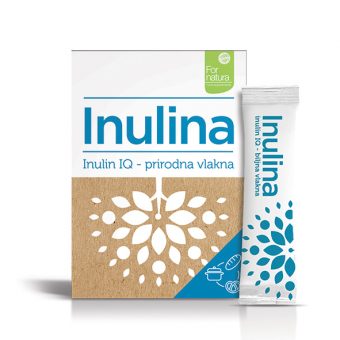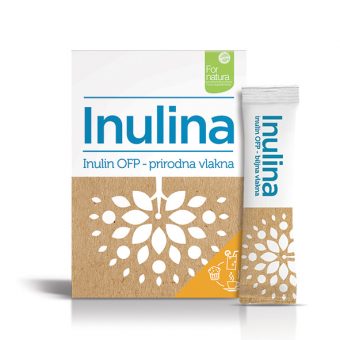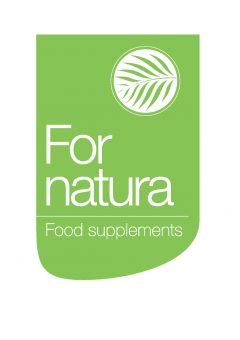
The use of antibiotics significantly improved the medical practice of the 20th century, and with the vaccination it contributed to almost completely eradicating certain diseases. Yet, their efficiency and availability led to overuse, which enabled bad bacteria to develop resistance to antibiotics, while good bacteria were destroyed.
Therefore, it is very important to find out more about beneficial bacteria, which are crucial for our health, as well as how to protect those bacteria from antibiotics, and preserve them in natural way.
Gut Flora in Balance
Do you know that human guts are “habitats” of billions of living bacteria whose total weight can be even 1.3 to 2 kg?! It may sound terrifying, but many of them are needed and helpful. All the bacteria that live in our intestines can be divided into “good” – useful and “bad” – pathogenic. Useful ones make up 75 per cent of immunity and help us get important nutrients and energy from food, accelerate calcium absorption, and vitamin B12 synthesis, regulate blood sugar level, hormones, neurotransmitters… That’s why it’s

important to have them as much as possible.
Today it is not easy to achieve that, since the foods are abundant with additives and preservatives. Nutritionists say that after all, there is a solution: natural plant fibers – inulin, which help to bring the intestinal flora into balance and for the good bacteria to overpower the bad ones. Inulin comes from roots of the chicory plant and represents the reserve carbohydrate of the plant. It belongs to prebiotics – this means that it is food for probiotics. Only one bag of 5 grams of inulin multiplies the number of useful bacteria by several hundred billion.
The Guardian of the Overall Health
Inulin is simple. A bag of 5 grams is dissolved in a beverage, and can be added to ice cream and soup, sauces and other. Just mix and get a probiotic meal in a natural way.
 ALLERGIES A higher concentration of useful bacteria drastically reduces the risk of allergy.
ALLERGIES A higher concentration of useful bacteria drastically reduces the risk of allergy.
CANDIDA If we have a handful of good bacteria in the intestines that are also well-fed with inulin, they are able to fight the candida and prevent it from becoming the systemic illness.
IMMUNE SYSTEM BOOST Inulin in food stimulates the creation of T-cells important for the defense system. By feeding good bacteria, we strengthen the immunity of the digestive system, but also the whole organism.
PREVENTION OF THE OBSTIPATION By helping to develop normal intestinal flora, inulin makes it easier to digest. According to many studies, doses of 5 to 10 grams daily stimulate the growth of bifidobacteria and lactobacilli.
SUITABLE FOR DIABETICS In the digestive tract, inulin is converted into inulin-propionate, which leads to increased insulin secretion from the pancreas and contributes to the regulation of blood sugar. At the same time, it does not increase blood glucose levels.
 REDUCES RISK CANCER A lower pH in the colon causes a lower risk of cancer because cancer-causing enzymes are inhibited. Bacteria produce butyrate, which is associated with suicide of cancerous cells and increased glutathione antioxidants in the intestines.
REDUCES RISK CANCER A lower pH in the colon causes a lower risk of cancer because cancer-causing enzymes are inhibited. Bacteria produce butyrate, which is associated with suicide of cancerous cells and increased glutathione antioxidants in the intestines.
PREVENTS OSTEOPOROSIS Calcium is absorbed along with inulin and thus contents of minerals in bones is impoved and the density of the bone mass.
PROPERLY FUNCTIONING COLON Enables complete detoxification and prevents the reabsorption of harmful substances into the bloodstream.
REDUCES ANXIETY AND DEPRESSION Apart from inulin, serotonin syntesis is regulated, which is 80 per cent synthesized in the intestine. If there is a disorder in the microflora and colon functioning, serotonin synthesis is severely affected.
VITAMIN B12 SYNTHESIS This is very important for vegans, because if they do not eat foods of animal origin and do not have a good microflora, there is a deficit of vitamin B12. But if good bacteria are supplied with inulin, they themselves synthesize vitamin B12.
MEAL IN A SACHET
Inulin is simple. A bag of 5 grams is dissolved in a beverage, and can be added to ice cream and soup, sauces and other. Just mix and get a probiotic meal in a natural way.
Contact
Fornatura d.o.o.
office@fornatura. rs



